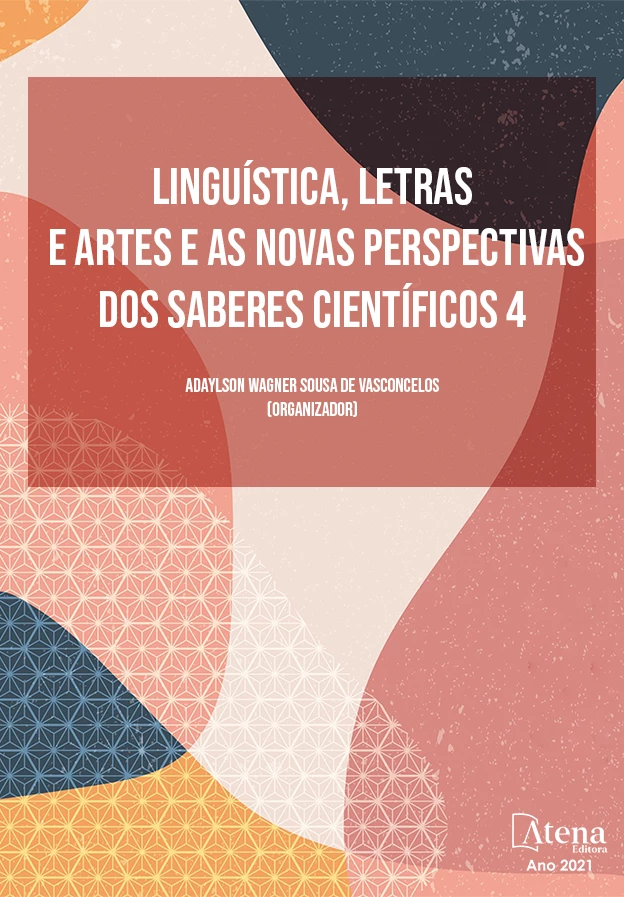
Do deslocamento vivido ao deslocamento narrado em prosa: um estudo sobre a produção de diferença na literatura
O estudo tem como objetivo identificar, com base na experiência do deslocamento na forma de prosa autobiográfica, quais são os efeitos decorrentes do contato com a cultura do outro. Nesta direção, personagens reais são analisados sob a ótica da produção de diferença, em um exercício conceitual desenvolvido com base nos trabalhos de Gregory Bateson e de Benedict Anderson. A metodologia está fundamentada na pesquisa bibliográfica sobre o gênero chamado literatura de viagem e o conceito de informação, elementos centrais na compreensão dos processos pelos quais a experiência de viver em outro país viabiliza diferentes tipos de mudança no nível infocognitivo das pessoas, resultando, entre outras coisas, nas mutações da identidade, do modo de ser e de perceber a cultura do outro. O corpus do estudo é formado por três livros: “De moto pela América do Sul: diário de viagem”, de Ernesto Che Guevara; “Transplante de menina: da rua dos navios à rua Jaguaribe”, de Tatiana Belinky; e “Sete Anos no Tibet”, de Heinrich Harrer. Os termos significativos presentes nos discursos dos autores-personagens foram submetidos à Análise de Conteúdo (AC), conforme orientações metodológicas de Laurence Bardin. Os resultados demonstram que os autores-personagens tornaram-se outros ao longo da experiência do deslocamento vivida em outro país, na medida em que conheceram novos modos de viver, de pensar, de falar, de agir e de ser. Nessas narrativas sobre experiências concretas, o processo de conhecer e de aprender vivendo em outra realidade espaço-cultural é marcado por dificuldades de toda ordem, tal como o choque cultural e de valores, o que leva os autores-personagens a repensarem e a reelaborarem as representações sobre si mesmos, sobre o país de acolhida e sobre o país de origem
Do deslocamento vivido ao deslocamento narrado em prosa: um estudo sobre a produção de diferença na literatura
-
DOI: 10.22533/at.ed.7862108038
-
Palavras-chave: Deslocamento; Literatura; Diferença; Informação
-
Keywords: Displacement; Literature; Difference; Information
-
Abstract:
The purpose of this study is to identify, based on displacement experience in the form of autobiographical prose, what effects resulting from contact with the culture of the other. In this sense, real characters are analysed from the producing perspective of the difference, in a conceptual exercise, developed based on the writings of Gregory Bateson and Benedict Anderson. The methodology is based on bibliographic research using the literary genre called travel literature and the concept of information. Central elements in understanding the processes by which the experience of living in another country enables different types of change in the people's info cognitive level, resulting, among others things, changes in the identity, way of being and perceiving the culture of the other. The study corpus is based on three books: “The Motorcycle Diaries: A Journey Around South America” by Ernesto Che Guevara; “A girl’s transplanting: from the street of the ships to the Jaguaribe’s street” by Tatiana Belinky; and “Seven Years in Tibet” by Heinrich Harrer. The significant terms present in the authors-characters speeches were submitted to Content Analysis (CA), according to methodological guidelines of Laurence Bardin. The results showed that the authors-characters had become another throughout the experience of displacement lived in another country, as they have discovered new ways of living, thinking, speaking, acting and being. In these narratives, about concrete experiences, the process of knowing and learning, living in another cultural-space reality is marked by difficulties of all kinds, such as cultural shock and values, which leads the authors-characters to rethink and re-elaborate representations about themselves, about the host country and about the country of origin
-
Número de páginas: 17
- Fernando Sampaio Campos
- Rubens da Silva Ferreira


